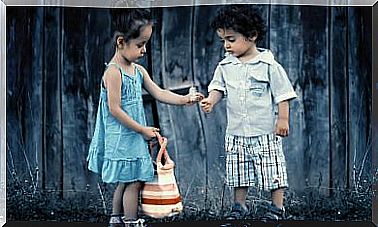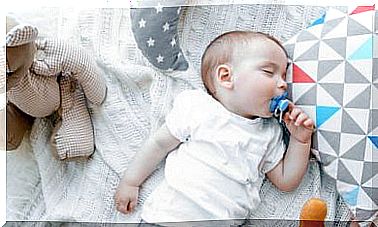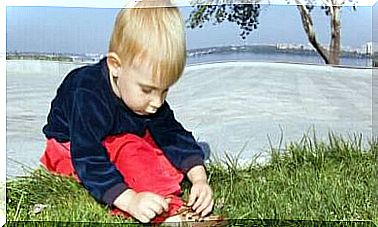Becoming Parents Can Change Your Brain
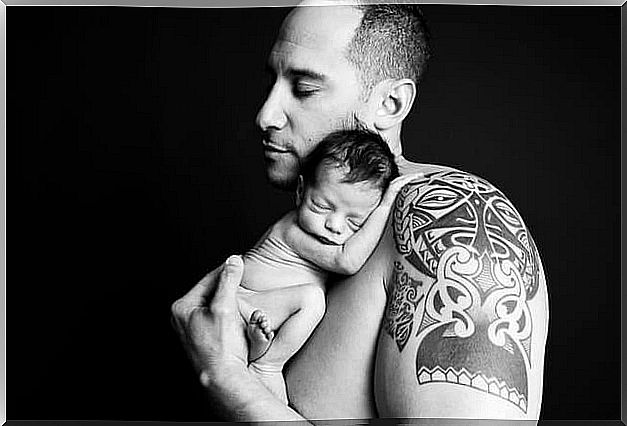
But did you know that having a baby terrifyingly changes a parent’s brain? Learn why becoming a parent can change your brain.
Something we are more than used to reading and listening to is that having a child changes a woman’s life.
Changes come first during pregnancy, with all this explosion of hormones, with the physical changes, and with that early connection to that little being that grows inside a woman.
Likewise, during the period of breastfeeding – and also of bottle feeding – this bond between mother and child is built. At such times, the brain, intensified by the wonderful flow of oxytocin, further enhances the union of mother and baby.
However… what about Dad? Does he stay out of these happenings, all this magic?
No way. It is past the time to include parents in the upbringing, emphasizing the attempt to overturn some of these ideas that “they just help”, that they “just be present” .
Because a father does not help, he must be present and occupy his vital, affective and meaningful space. What’s more, he also experiences some changes at the brain level that you need to be aware of. Find it out!
Parents, the closer the better
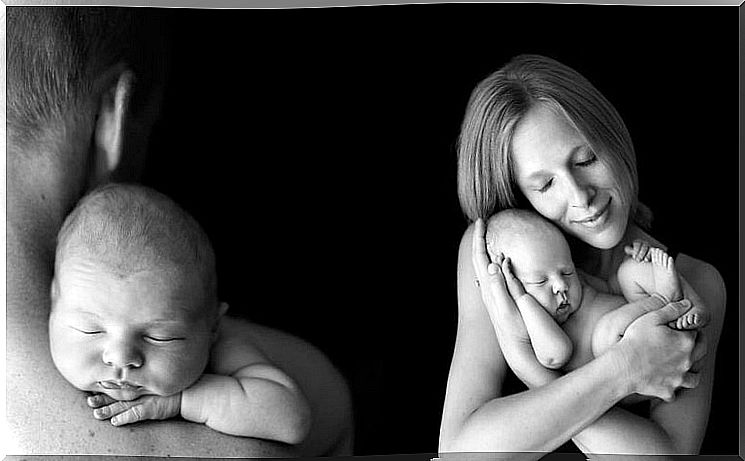
Daddy, the closer you are the better it will be. Daddy should be by Mommy’s side and should also enjoy his skin-to-skin moments, his nap times with the baby, his baths while the father makes the little one laugh, etc.
The secret of this basic need for closeness, in fact, is fundamental to strengthening the bond with babies.
According to a paper published in “Hormones and Behavior”, the more time parents spend with their partner and their children, the more oxytocin their brain will release. As a matter of fact, it is enough to see a photograph of the children for this reaction to occur immediately.
Yes, Dad’s body also releases oxytocin, just like Mom’s
As we already know, oxytocin is essential in motherhood. This hormone stimulates breastfeeding and intensifies mothers’ need for affection, care and attention towards their children.
This is something we already knew and that we’ve read and listened to to exhaustion. However, we must remember this fact: Dads release the same level of oxytocin as mothers when they are with their babies.
Isn’t that wonderful?
Daddy protects us and also understands our emotions, our needs
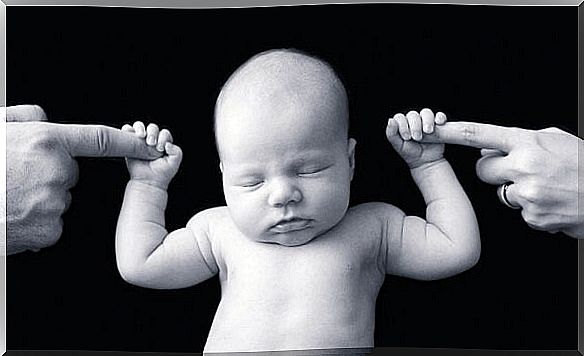
One thing that we are already seeing with normality is more and more men who become “housewives”, who start to stay at home to raise their children.
Likewise, it is also clear that many parents have almost the same tasks and responsibilities as their peers. Also, many choose parenthood on their own when trying for adoptions.
- There are parents of many types, we know that. But one thing is certain: they have the same capacity to love, educate and establish a strong bond of affection with their children as mothers.
- In view of these new roles, scientists also identified a phenomenon they defined as the evolution of parenthood.
- It’s like an adaptation of the species, in which parents have gone through a series of changes in their brains in order to effectively raise their children.
- At the Bar-Ilan University’s Gonda Brain Science Center in Israel, a more significant level of activity was observed in the superior temporal sulcus of the brain.
- Such observation implies, for example, that men show greater aptitude for emotional reading, identifying their children’s needs, understanding their emotions and this sometimes complex inner world, in which mothers, until not long ago, were the great experts.
6% of parents may suffer from depression after the baby is born
No, postpartum depression is not unique to women. Parents do not bear a baby, do not give birth, but they also experience a decrease in dopamine when experiencing sensations as basic as feeling isolated or removed from the task of raising a child.
When they don’t feel useful, when they don’t enjoy this closeness and caring for the baby, parents can also develop depression.
This is something important to consider to remember that “they do not help, they are part of it, they also rock the baby, feed, love, raise and care for” .
We must keep this thought in mind and enjoy fully and together this wonderful moment of having a child.
